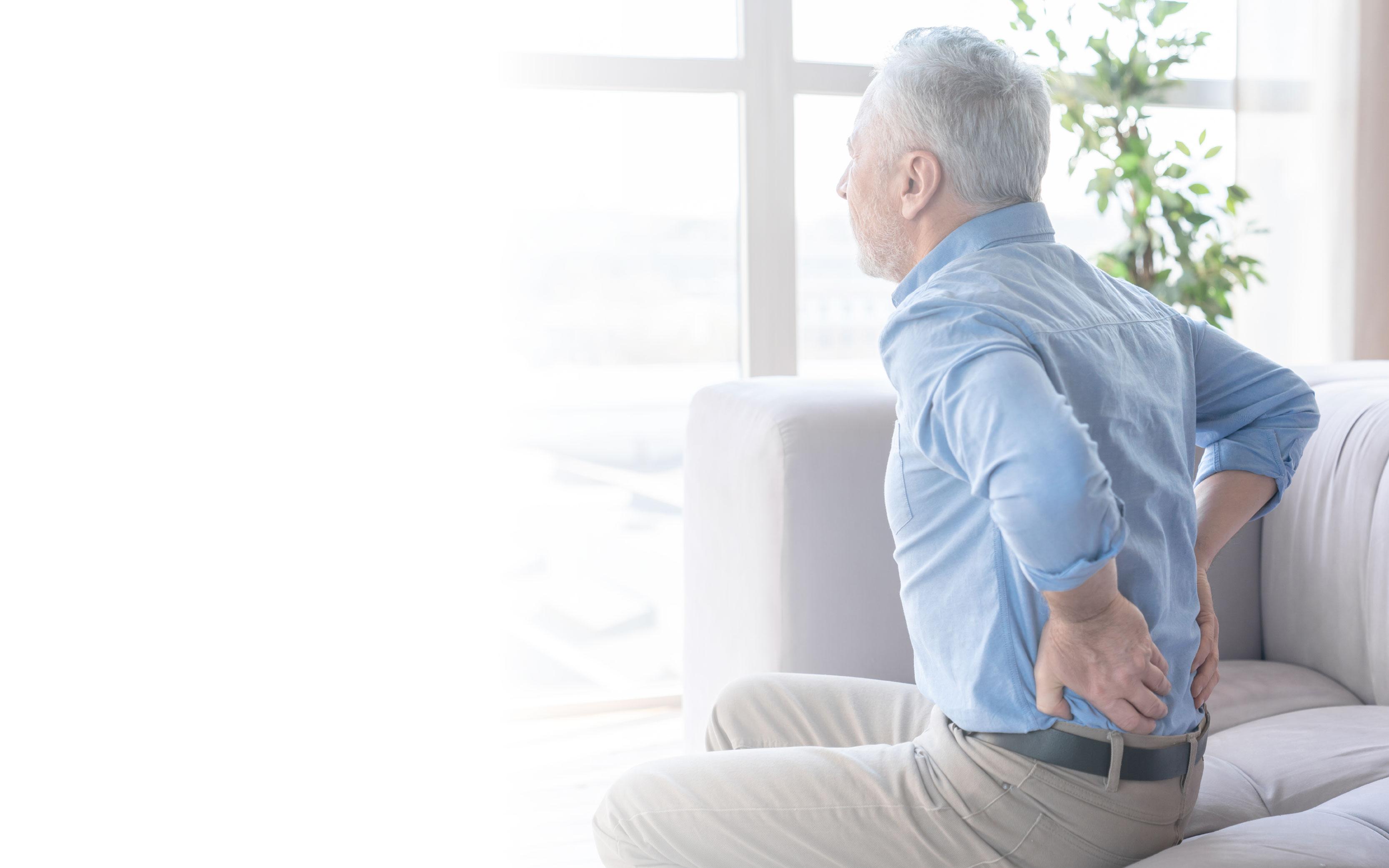
Herniated disc
Fight back against low back pain
A single excessive strain or injury can cause a herniated disc in your patients, which can take a toll on quality of life. Disc material degenerates naturally with age, and the ligaments that hold it in place begin to weaken. As this degeneration progresses, a relatively minor strain or twisting movement can cause a disc to rupture.1
Symptoms of a herniated disc in the lower back may include:123
- Pain in the leg that is often described as sharp and electric shock-like
- Weakness in the leg, foot and/or toes
- A shooting pain in the lower back, through the buttocks and down the leg
- Tingling (“pins-and-needles” sensation) or numbness in the leg, foot and/or toes
A common issue
Each year, up to 2% of people get a herniated disc.4 Herniated discs are a leading cause of back and/or leg pain and may leave patients feeling helpless and unable to perform everyday activities.
An accessible answer
When a patient’s discomfort isn’t improving with conservative treatments—pain medication, heat/cold therapy, stretching and activity modification—they may be helped by an outpatient procedure called Disc Decompression.

